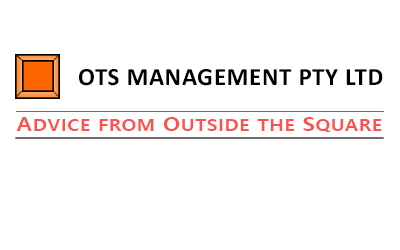So, this is going to be a controversial posting.
I wonder what you think about the morality of your behaviour when you choose to change professional advisors? I don't mean the professional ethical rules, but the morals of how you do it. And how should the professional advisor react?
Here is a story of how a client of mine decided they wanted to change accountants. Read through the circumstances, and then tell me what you would have done.
The client has been a client for many, many years. I have provided services when he was insolvent, accepted delayed payment of fees to suit his cash flow, been through personal issues and divorce and so on.
Last year he was late paying, so when my staff approached him, his wife said that there were "many problems" and that our fee was too high. In truth our fee averaged at about $2,000 per trading entity, reasonably within standard for the amount of trading activity. The total sounded a lot because there were 15 trading entities, each with complex inter-company loans and mixtures of profits and losses that had to be done as a group and checked with each other. The "problems" apparently related to the many annual adjustments to their MYOB accounts which she maintained.
She did not think they needed adjusting.
Unfortunately she is not a trained accountant and so did not understand various details of concepts like the fact that some payments are classed "capital" in nature and therefore are not shown in the profit and loss accounts but on the balance sheet.
At this stage my staff had only spoken to his wife and I had not been involved, but having heard the feedback I reviewed the "problems" and found them to be caused by her using the wrong GST code for transactions (thereby resulting in incorrect GST balances); our having to move transactions from one entity to another through loan accounts because one entity's expense was paid for out of another entity's bank account; and so on. To be frank these are the usual adjustments we make on client books to correct the work of people who are not trained accountants.
No biggie.
The other adjustments were required through "year-end" type adjustments - accruals, recognition of capitalisation rules, adjustments of prepaid expenses, depreciation entries, decisions based on tax-planning of trust distributions, and so on.
Again, no biggie, although as a whole there were a large number of adjustments we gave her every year because of the number of entities they had.
So I rang him and explained. His words to me were "well, I don't have a problem with the fees" and we were paid soon after.
So this year, we did the usual things - we sent him a checklist of information required, gave him dates to send information to us to meet his tax lodgement deadlines and so on. As usual they were late in sending in the MYOB files - but no biggie - we scheduled the work and started.
In the course of the work there were queries. Some of these were to ask for supporting documents (for example so we could categorize whether legal expenses were deductible); some of them were to ask for clarification of dates of sale/purchase of assets, and so on. You will have gathered that despite sending the checklists for information they did not return all the information requested, not even copies of bank statements, just the MYOB files.
But again, no biggie, we work through any missing information as required.
The answers were provided and we carried on.
In the process my staff informed me of substantial profits this year - as a multi-entity trader, many of the initial set up costs and low margins from all the shops and restaurants had turned from annual losses to profit, and tax losses had been largely used up last year (which we pointed out when we sent last year's tax returns). So I immediately asked our senior tax manager to review the situation and provide a "best distribution strategy" while avoiding Division 7A.
Most of you will know that Division 7A is a trap and a bit of an administrative nightmare where it can reduce this year's tax, but it sets up a repayable loan so you in fact have to calculate annual interest and repayments and pay the tax over 7 years.
I emailed my client to tell him I was doing this.
On obtaining the most tax-efficient strategy (after some overtime work) I informed my client - especially to the fact that while spread out over several tax payers, a total tax bill of nearly $240,000 for the group was imminent. They had made over $800,000 in group taxable income after claiming previous year losses.
I was actually quite proud of restricting the aggregate tax rate to less than 30% while not triggering any traps.
After I sent him drafts, there was silence for a couple of weeks, despite my emails reminding him that his tax returns were now overdue.
Then, on a weekend, I received a voicemail left at the office, saying that while he thanked me for our long relationship, they had been "unhappy" with our accounts and fees last year (remember, he had said "well, I don't have a problem with them"?) and was unhappy with the accounts this year. They were going to change accountants, and "someone else would lodge these tax returns".
Hmmm.
I would like to say to him that unfortunately the size of the tax bill is a reflection of the size of the profits, and neither were in the "creative" jurisdiction of the accountant. What had happened during the year in terms of profits had to be reported.
Also, it is not usual for clients to move their professional advisors after work has commenced. Or at least, you would expect to have to pay for the work done to date, right? That is, unless your professional advisors totally stuffed it up, but nothing was done or said to say that (and frankly I would consider defamation if it was).
So, let me stop there and ask what you would do if you were me?
Don't read any further until you consider this question - if you were in my shoes what would you do? Send a bill for work done to date and sue for payment?
That is what I did not do.
I have two core beliefs. The first is that while I cannot control what happens to me, I can control how I react to it happening. The second is that my business and personal values must always be reflected in what I do. That is why many people come to me as their business advisor - because I believe in a set of values and I live by them when I deal with you as client.
One of my business and personal values is that I will not stoop to pursuing anyone legally or otherwise, that I have a relationship with; that I will be respectful of relationships and people.
So I controlled my reaction in the way that befitted my values. I did not send an invoice and threaten legal avenues.
What I did do was to contact this client, agree with what he said in his voicemail message that we did indeed have a long relationship; that I did not create the profits but merely reflected them; that a great deal of work had already been done which he had witnessed through the continuous communication for more information and discussion.
Then, I just left it with him and to his honour to decide what he wanted to pay for the work done to date.
That's all.
He could decide to pay nothing or he could name his own price.
The moral of this story is that in business, you need to be true to your core beliefs and values. A good business must rest on ethical business practice or it will not stand the test of time.
Your reputation for being a human-level ethical business will become part of your brand. The reputation will attract customers and employees who believe in the same thing; it will deter customers and employees who are themselves not ethical.
This is not just woo-woo, this will actually result in higher profits from long term loyal customers. Happy customers stick with you, and will reward you more with more business.
Here are some practical things you can do to ensure that you run an ethical business:
- Make sure you define your Values system for the business, and ensure that everyone in your organisation understands those values and lives by them at work. Make no exceptions - gradually, those who do not fit, will weed themselves out. Replace them with people who will uphold those values.
- Measure your customers by the way you do business. Do not chase the dollar if you have to sacrifice your values. If you do, in the long run, your good and loyal customers will see how you, or your staff, are not actually true to your values, and their relationship with you will suffer. If you live up to your values, over time, "bad" customers will leave - that's okay, it leaves you with more time and resources to find "good" customers.
- Implement a customer complaints policy and procedures, and train your staff on how to use the policy and system to deal with customer dissatisfaction. There should be no exceptions. Outline the procedures, and even a script as to how these are to be handled. Do you offer "no questions asked" replacements? Do you offer a series of escalating solutions until the customer is satisfied? Whatever the policy is, stick to it.
Now over to you - this is where the fun starts - so tell me what you think? Get over to otsmanagement.com.au and leave a comment under this posting.
First tell me how you would have handled the process to change accountants (for whatever reason) if you had been the client?
Second tell me what you would have done if you were in my shoes?
(To close the story above, the client never called me back. However two weeks later a deposit of $20,000 mysteriously appeared in our bank account. My faith in human nature, and the value of sticking to values, was restored.)




